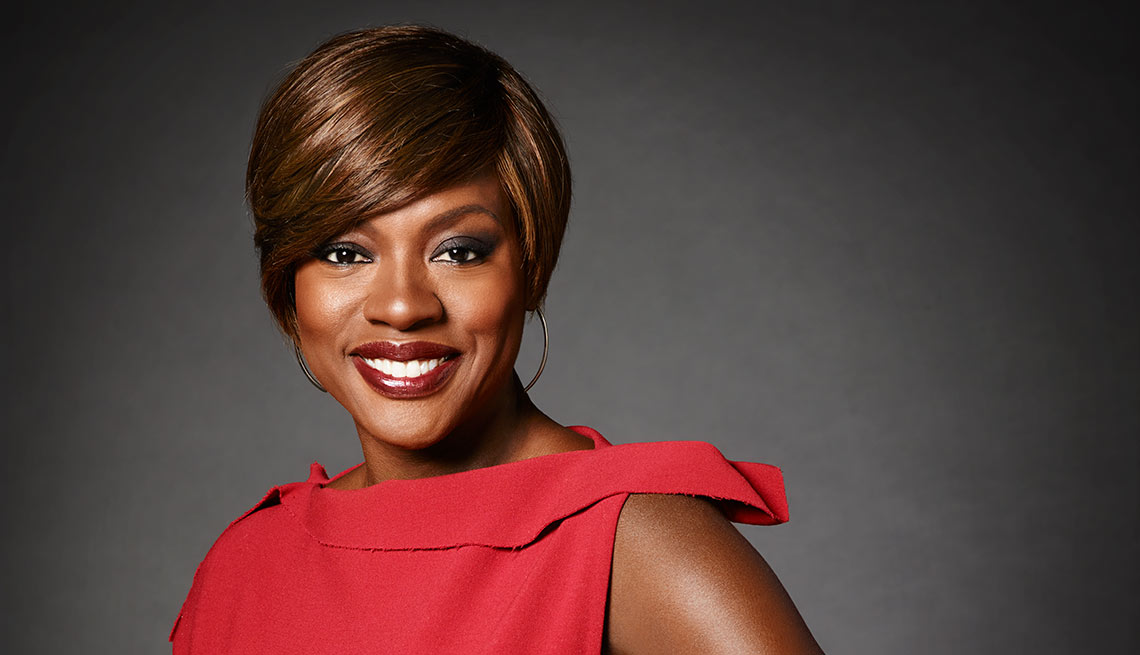Play all audios:
They didn't own a car, so when Davis' younger sister was born in a hospital in Providence, Davis and her siblings walked for two hours to see the baby. They then walked two hours
back. Wherever they walked, Davis remembers, "people would throw things out of cars and call us the N-word. It was constant." She and her siblings coped by excelling in school,
says Davis. They loved learning and rarely missed a day of class. "We didn't want to end up in the same situation as our parents, worrying where the next meal was coming
from," says Davis' sister Deloris Grant, who now teaches drama and Advanced Placement English at Central Falls High School. School was their haven, and they stayed late,
participating in sports, music, drama and student government. From age 7, when she and her sisters first performed in and won a talent show put on by the Central Falls Parks and Recreation
Department, Davis was obsessed with becoming an actress. She entered the Upward Bound program, which prepared her for, and later paid all her expenses at, Rhode Island College. As a freshman
there, she studied oral interpretation with Elaine Foster Perry, who recalls, "Viola was a talent that doesn't come down the pike very often. I did not want to mess her up."
Perry says that Davis already had all the attributes of a great actor, including unusual powers of concentration and empathy. "If tears were needed in a scene, she had them in less than
a minute." What Davis knew even then, as she puts it now: "I'm in the business of creating human beings." After college, she auditioned for the drama program at
Juilliard. There were 2,500 applicants for 14 spots. She performed a monologue from _The Color Purple_ and a Molière piece, and was awarded a full scholarship. Deborah Hecht, one of her
professors, notes that Davis didn't have an easy time at Juilliard, but she did have what it takes to make it: amazing talent, of course, and "great passion — strength and
fire." Once out of school, Davis began working in theater. At 29, she played the lead in Shakespeare's _Measure for Measure_ at the Trinity Repertory Company in Providence, where
the actor Richard Jenkins was artistic director. Jenkins says he couldn't teach Davis anything. "She had an awareness most young actors don't have — that her gifts came from
within herself. You're all you've got, and you're enough. When she's hurt or angry, it's real. Viola is hurt. She's not playing, and if you are, get out of her
way." Eventually, Davis won two Tony awards, and, having moved into television and film, she worked steadily, usually in supporting roles. In 2009 she began getting wider notice when
she received an Oscar nomination for her performance in _Doubt_. Three years later, she earned a second nomination for her turn as the maid Aibileen Clark in _The Help_. At the Academy
Awards that year, she cast aside her long-held shame about her hair — thick, fuzzy curls that couldn't be tamed — and appeared without a wig, revealing a close-cropped Afro. Yet she
still believed that, by Hollywood standards, she was too old and too dark-skinned to play a romantic lead. "No one's going to cast me in a love scene with Bradley Cooper," she
once said. Viola Davis and husband Julius Tennon glam it up at the Oscars. AP That notion was upended when, in 2014, she was offered the starring role in _How to Get Away With Murder_. Her
husband, actor Julius Tennon, says the part gave her the opportunity to "step into her training so people could see all that Viola Davis can do." As Annalise, Davis is brilliant,
formidable and seemingly heartless; then, suddenly, she's in tears, or inappropriately running her hands over the arms of a student. Then she's steely again and you can't take
your eyes off her. She prepares intensively for each role, writing a biography of her character, and did so before shooting _Murder_, even shadowing a female criminal attorney to get a
better feel for the role. "But the harder prep," she says, "was knowing who Annalise is inside." She didn't want to play her like the sophisticated, sexually
aggressive women so often seen on TV. She felt Annalise would walk in high heels the way Davis does, clomping and not graceful. "I walk funky," she says, chuckling. And she was
certain her character had been sexually abused. "Women who are promiscuous are that way for a reason," Davis offers, "and I wanted to delve into that." For the first time
in her career, she was required to do sex scenes. "They are almost never realistic," she says. After shooting one, she made a pronouncement to her _Murder_ producers: "No
more sex on walls! I was sore after that. I'm not 20 anymore, and, anyway, who does that?" She also embraced Annalise's unlikable side. "I've played warm and fuzzy
to the point that it's made me nauseous," she says. "We're not always likable. Sometimes we're mean, and we're mean to the people we love." She puts her
fingers together, as if in prayer. "I reserve the right to be a mess and completely unlikable."

